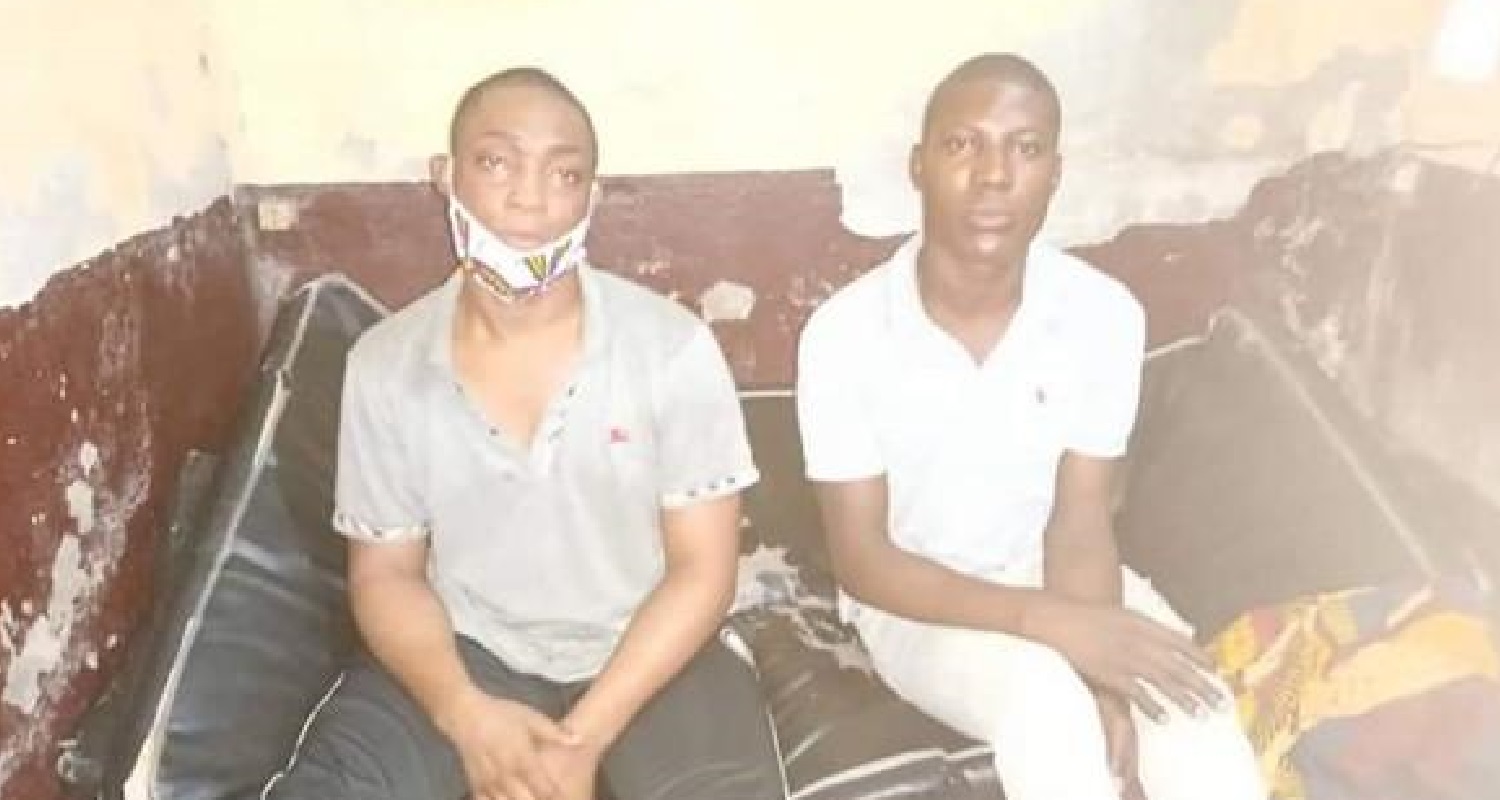Two transgender women jailed in Cameroon for five years
Human rights groups have branded the move a "death sentence".

Words by Alastair James; picture courtesy of Human Rights Watch
Human rights campaigners have called for two transgender women arrested in Cameroon to be released from jail, saying the pair’s five-year prison term essentially amounts to “a death sentence.”
The women, Shakiro, formerly known as Njeuken Loic, and Patricia, formerly known as Mouthe Roland, were jailed on Tuesday (11 May) for five years under a law that bans same-sex relations.
Attitude has made the rare editorial decision to include the names Shakiro and Patricia have been processed under in Cameroon’s legal system, in order to raise greater awareness of their plight.
Shakiro and Patricia have also been fined 200,000 CFA francs (£260) each.
“It’s appalling and a setback for Cameroon.”
Neela Ghoshal, Associate Director, Lesbian, Gay, Bisexual, and Transgender Rights Program at the advocacy group Human Rights Watch, (HRW) says the pair were arrested in the city of Douala on 8 February for wearing female clothing.
“It’s appalling and a setback for Cameroon,” says Ghoshal.
“We’ve been watching Cameroon for 10 years now. We thought it had made some progress in ending what was a constant judicial harassment of LGBT people a decade ago. But in the last year it seems the country has been on a downwards spiral.
“They were at a restaurant and were wearing what is considered to be women’s clothing. The Gendarmes (police) who spotted them believed them to be women.
“These women did nothing to violate the law and no one should be prosecuted on the basis of their identity.
Ghoshal explains that in Cameroon there isn’t a strong understanding of what being transgender is.
“If you’re gender non-conforming there is a presumption you are gay.”
“This is a stain on Cameroon’s judiciary”, says Ghoshal, who argues the courts were determined to prosecute and have failed to uphold people’s basic rights.
“It’s a very threatening situation for the community. Everyone is feeling like they are at risk.”
“Their experience will be horrific and unimaginable.”
Cameroon is one of more than 30 countries in Africa that criminalise homosexuality.
The country’s penal code was updated in 2016 to state that anyone having “sexual relations with a person of the same sex” can be imprisoned for anywhere between six months and five years.
Ghoshal says the women have been charged with attempted homosexual conduct, public indecency, and for failing to carry their national identity cards. The latter she says, “is a very minor infraction.”
She also says the two have already been subjected to abuse and death threats during their arrest and subsequently in an overcrowded prison, which Neela has experienced herself.
“They are horrific… Their experience will be horrific and unimaginable.”
“This is essentially a death sentence…”
“… some of the most horrific stories I hear.”
According to HRW and The International Lesbian, Gay, Bisexual, Trans and Intersex Association police forces in the African state have been increasingly arresting people over the last year, including a 17-year-old boy for alleged gender non-conformity, and have exacted cruel punishments, such as forced anal examinations, on some.
HRW says up to 24 LGBTQ people have been arrested, threatened and assaulted since February.
Writing for BBC News, Ben Hunte, who was the BBC’s first LGBT correspondent (but is now the West Africa Correspondent) says the abuses taking place in the country are “consistently some of the most horrific stories I hear.”
Lawyers for the two say they are appealing the verdict over a lack of evidence Shakiro and Patricia had committed homosexual acts.
Given the charges, which Neela argues are unsubstantive, she’s hopeful the sentences can be overturned.
Attitude has contacted representatives for Shakiro and Patricia for comment.
